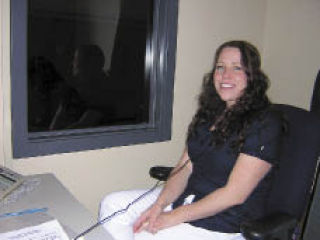As Fall City parent Christine Anderson plays with her 5-year-old son Alec in a small room at Encompass, Lindsay Weller watches and listens behind a two-way mirror.
As Anderson praises Alec’s calm play while he builds LEGO airplanes, Weller is in constant contact with her over an earpiece, encouraging her in new ways of communicating with her son.
“Beautiful,” Weller tells Anderson. “You’re doing an excellent job keeping him involved and letting him lead.”
Anderson and Alec are taking part in a class at Encompass called Parent Child Interaction Training, or PCIT. The training helps build parenting skills and reduce child behavior problems with one-on-one live coaching.
For Alec, it’s “special playtime,” but for mom Anderson, it’s a way to be a better parent.
“It’s helped me to slow down and look at things from a different perspective,” said Anderson, who’s taking the class for the second time as a parent. She took the class five years ago with her daughter.
“I just knew there had to be a better way,” she said.
The program has helped her be more aware of the things she says. Playing with her son for just five minutes a day, Anderson said, has made a big, positive difference in his concentration.
The training and positive feedback are paying off. When Alec asks for a toy, he asks politely, and when one of Alec’s LEGO planes “crashes,” it’s not a big deal.
“That was such a gentle crash,” Weller said.
As Alec and Anderson continue their play, Weller turns to fellow coach Michelle Rhoades.
“She’s doing really, really well,” Weller said of Anderson. “It won’t be long until she graduates to the next level.”
At any given time, about nine families go through live coaching at Encompass.
“We see every age group, every demographic, every socioeconomic level, every kind of family you can image,” Rhoades said. “Some are court mandated to come. Some just need a little help to learn their skills. Really, everybody can benefit from this.”
At first, coaches do most of the talking, and parents follow their instructions.
“As the sessions go on, we’re talking less and less, and they’re talking more and more,” Rhoades said. “They’re learning how to talk to their kids.”
When children act out and challenge authority, “they’re just doing their job,” seeking responsibility and trying to make their own choices, Rhoades said.
It’s the parents’s job to make sure children know when they’re doing right. That praise helps encourage children to act in positive ways more often.
When giving a command, parents need to “stop explaining and talking so much,” she said. “If it’s important enough to give a command, it’s important enough to follow through.”
Sometimes parents will ask their child to do something, but not follow up on it.
“That’s the bad spot we fall into sometimes. We really mean to follow through with it, but we’re just trying to put out a fire,” Rhoades said.
“This is teaching parents to parent for the long term, versus in the moment.”
Learn more about PCIT at www.encompassnw.org.



